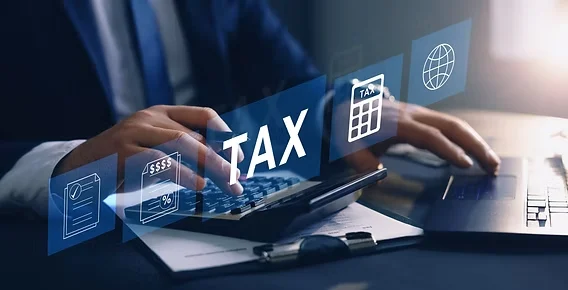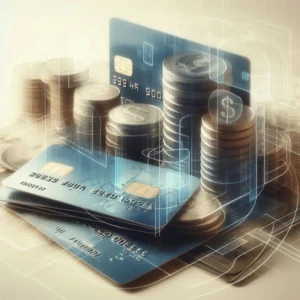How to Handle Crypto Tax in Thailand (2025 Edition)
Crypto is booming in Thailand, and the government has taken notice. If you’re trading, staking, or even flipping NFTs, chances are you’ve wondered: do I owe Tax on Crypto in Thailand? The answer, generally, is yes. But the rules can be a bit murky, and most traders are left unsure where to begin.
This guide breaks it down step by step—what’s taxed, what’s not, and how to handle your crypto taxes in 2025 without losing sleep.
Step 1: Understand What’s Considered Tax on Crypto in Thailand
Before anything else, it helps to know what counts as taxable crypto activity. If you make a profit from buying and selling coins, the government sees that as a capital gain. If you’re earning through staking or mining, that’s treated as income. Even NFTs and airdrops are on the radar if they carry any real value.
And here’s where it gets tricky—some experts argue that simply swapping one token for another isn’t a “realized” gain unless you convert to fiat. Others disagree. As of 2025, there’s still legal gray space around these situations, so it’s best to err on the cautious side.

Credit from : GSK
Step 2: Learn How Tax on Crypto in Thailand Are Applied
In Thailand, there are two main ways you might be taxed on your crypto earnings. The first is personal income tax, which is calculated based on your total yearly income (crypto included). It’s a tiered system, ranging from 5% to 35%, depending on how much you’ve made.
Then there’s the 15% withholding tax. This generally applies when you earn through foreign platforms, especially those not licensed in Thailand. However, if you’re using exchanges registered locally—like Bitkub or Binance TH—you might be exempt from this withholding tax, though you’re still expected to report your income.

Step 3: Stick with Thai Exchanges (If You Want Simpler Compliance)
Using licensed Thai platforms can make life easier. Not only are the tax rules clearer, but these exchanges often work directly with the Revenue Department, which makes tracking and reporting smoother on your end.
Just know that transparency comes at a cost. Your transactions may be more visible to authorities, so if you’re thinking of keeping things private, this may not be the best route. But if you prefer being on the safe side, staying local helps keep your records consistent.

Credit from : The Revenue Department
Step 4: Keep Proper Records (You’ll Need Them)
Documentation is key. Every trade, every token purchase, every reward you receive—keep track of it. Note when you bought, how much you paid, when you sold, and for what price in Thai baht. If you’re staking, mining, or receiving airdrops, track the value of those rewards on the day you got them.
You don’t need fancy software, though tools like Accointing or Koinly can help. Even a basic spreadsheet will do—just make sure it’s detailed and consistent. When tax time comes around, you’ll thank yourself.

Credit from : Use The Bitcoin
Step 5: Know When Exemptions Apply (And When They Don’t)
Thailand does allow for a few exemptions, but they’re narrow. For example, if you trade through a Thai-licensed exchange, you may not need to worry about the 15% withholding tax. However, this doesn’t mean you’re off the hook for personal income tax.
Some long-term holders or those operating under company structures might get different treatment, but for the average retail investor, the standard income tax rules still apply. Also, there’s no official minimum threshold—technically, even small profits should be declared.
Step 6: File Properly—or Get Help
When it comes time to file (usually by the end of March for the previous tax year), you’ll need to include any crypto earnings in your income report. If it’s a one-off, it might seem easy enough to do yourself. But if you’ve been trading frequently or earning crypto through different streams, a tax consultant is worth considering—preferably someone who’s worked with digital assets before.
They can help you calculate your liability, identify possible deductions, and ensure everything is above board. Better a few thousand baht in accounting fees than a Revenue Department audit, right?

Step 7: Expect Closer Monitoring in 2025
While enforcement has been somewhat lax in the past, don’t expect that to continue. Thai exchanges are already reporting user activity, and banks are flagging large crypto-related transfers. Thailand is also preparing to align with global reporting standards like the OECD’s Crypto-Asset Reporting Framework.
What this means for you: the window for avoiding crypto tax reporting is closing. If you’re earning significant income—or even modest profits—it’s smart to get ahead of the curve.
Final Takeaway: Stay Informed, Stay Safe
The tax on crypto in Thailand is very real in 2025, and the rules are getting clearer by the year. Whether you’re making small trades or building a portfolio worth millions, understanding your obligations—and keeping good records—is non-negotiable.
It’s not about fear. It’s about being prepared. If you’re unsure about where you stand, reach out to someone who knows the system. Because when it comes to crypto and taxes, uncertainty can be a lot more expensive than preparation.






